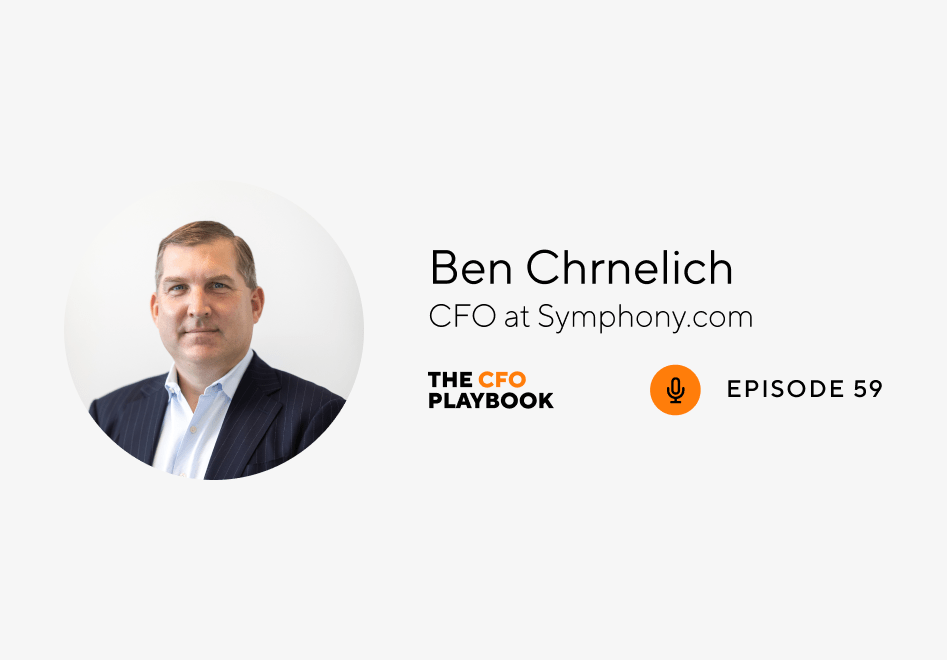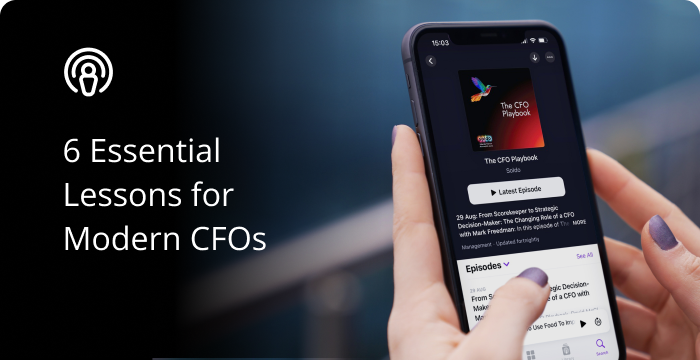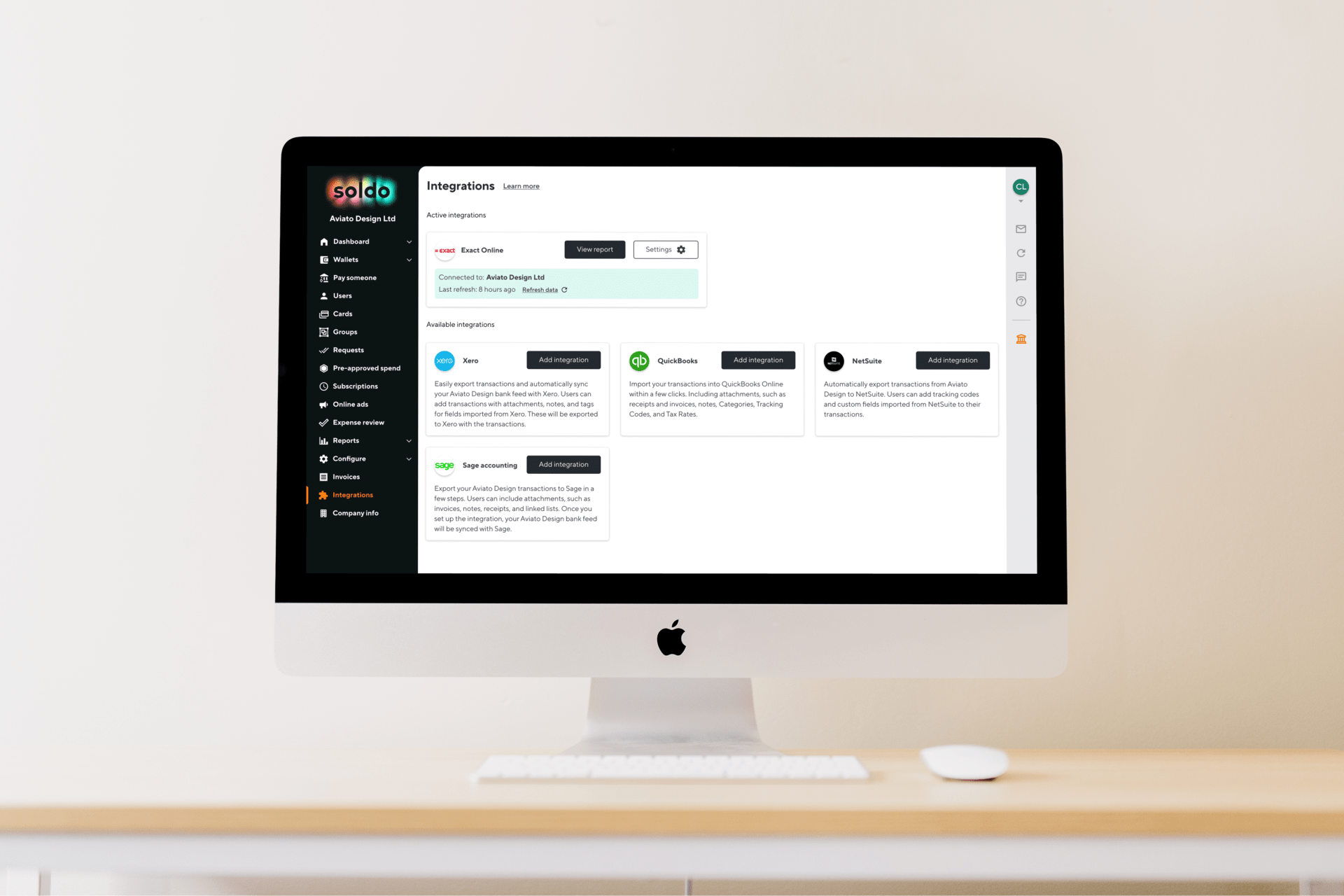Ben Chrnelich, CFO at Symphony.com, has a passion for Capital Markets Technology and has spent his career focused on enabling trading organizations to utilize technology that drives efficiency and productivity. Always aspiring to become a CFO, Ben sees technology as a tool that can empower financial leaders to have an impact at organizations that previously were not possible because the volume of work was too much and too manual.
In the latest episode of the CFO Playbook, Ben talks about his appreciation for the rate of change that technology is bringing both to capital markets and the finance profession. He discusses the importance of why adapting to new wave of technology applications is paramount to success and empowers companies with the tools to get the information and data they need. Ben details how these self-serving tools provide an opportunity to create a far more dynamic, explorative, and effective type of collaboration within the companies that can bring down information barriers and remove friction from daily finance functions.
Information and insight is gained through technology
Using technology can allow you to significantly reduce the amount of time it takes to get information on financials and business performance, providing faster and more accurate data. Information is so valuable that you need to be able to look at numbers in real-time and reduce close cycles. The best way to do that is with a thoughtful technology platform behind it.
“Without a high level of technology, access, and development in financial applications, it’d be very difficult to provide the information to a wide group of people. At the same time, you, as a CFO, would spend all your time just talking about numbers, as opposed to creating the environment that you can distribute that information out to all the interested parties.”
Narratives are necessary for numbers
You have to dig deep to understand the economics of business. Don’t just look at the surface level numbers, find what are the drivers underneath. You have to be able to translate numbers to a business story or outcome and tie them back to the real world. It is important for a CFO to be able to traverse across the whole business environment, seamlessly weaving in numbers, operating metrics, product results, and customer impact. This is part of putting together a comprehensive narrative of the business to explain what matters and why to non-financial or sophisticated business people.
“Your intellectual curiosity is paramount. Eventually the numbers tell you everything, but they don’t tell you everything if you don’t spend time understanding how they’re built, how they’re generated, and what themes are coming out of the numbers. So, you really need to have that intellectual curiosity.”
Communication is key
CFO’s need to have compassion and excitement for the business and industry that they work in, being able to communicate effectively and concisely to a wide variety of constituents. As a CFO you need to be able to communicate and understand the audiences you deal with in their own language, while also having a deep understanding of your own business, as well as the customers’ products and needs.
“You have to be viewed as a proxy for the CEO and you have to be, in the CEO’s mind and understand their strategy of how they’re looking to run the company, what they’re being measured on, what are the stress areas that’s consuming their time, what are the success areas that they’re looking to drive, and making sure that there’s a really strong connection between the strategic and operating decisions that get made.”
Lead by example
If you don’t have leadership ability across the organization and the team then it will be difficult to drive a strategy that you want to implement. As a leader you have to be an individual contributor, being able to do your own work and your own analysis. Be an example to your team. If you’re willing to do the work that anyone else on your team does, that’s a good way to teach others what you’re looking for and how to structure a message and communicate it.
“Part of being a leader is you have to expose yourself. And, it’s a little bit of a cliche, but you have to get comfortable with being uncomfortable. You have to put yourself out there a little bit. You have to know that if you put your head out, it might get knocked around a little. But, as long as you can keep doing that over time, you’re going to be able to figure out how to lead. And people will look at that as someone that’s comfortable taking a risk and pushing them forward.”
Let us know what you think for a chance to win
Complete our short survey on The CFO Playbook for a chance to win either an 11-inch iPad Pro or a Samsung Galaxy Tab S7.













